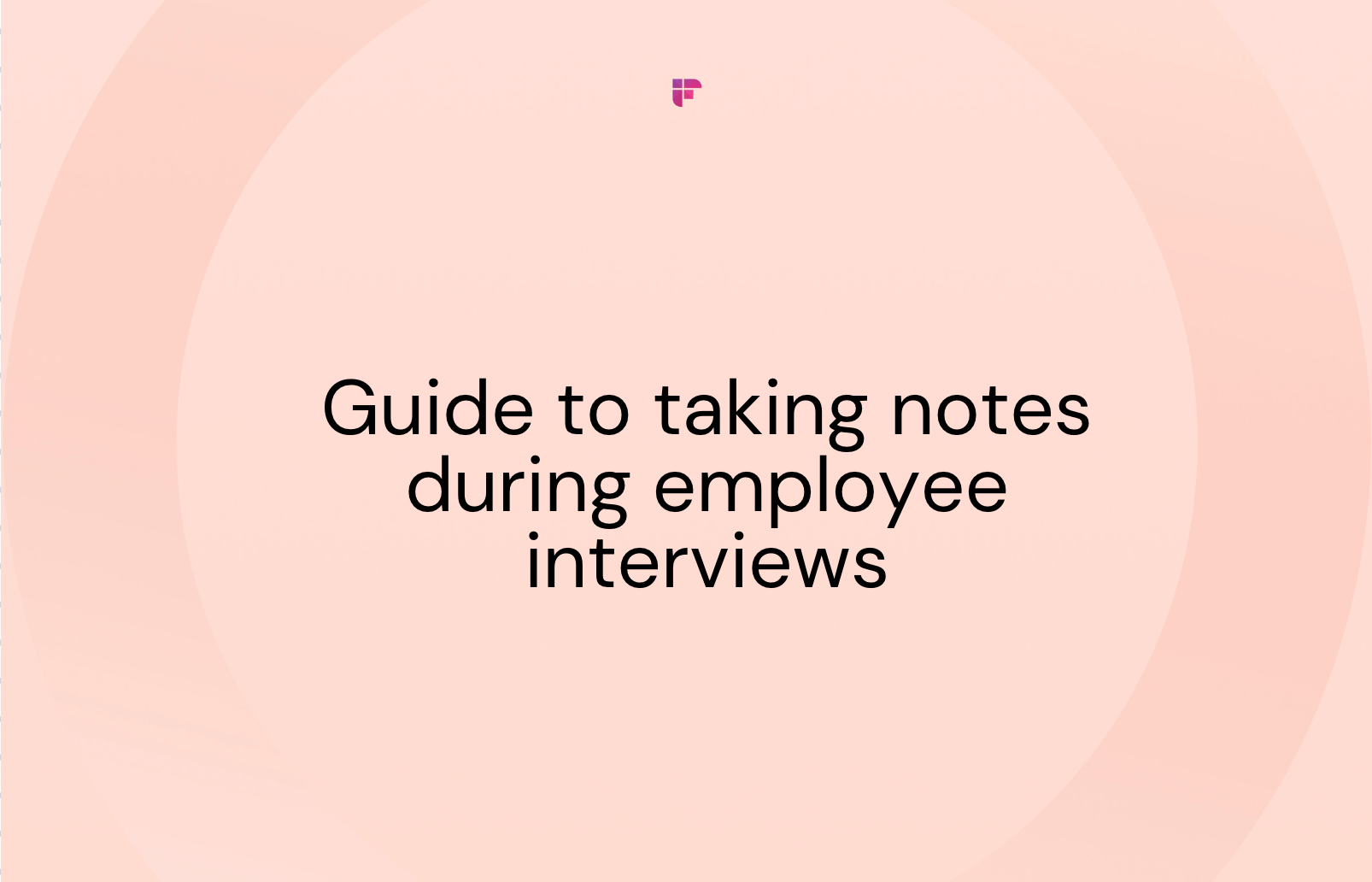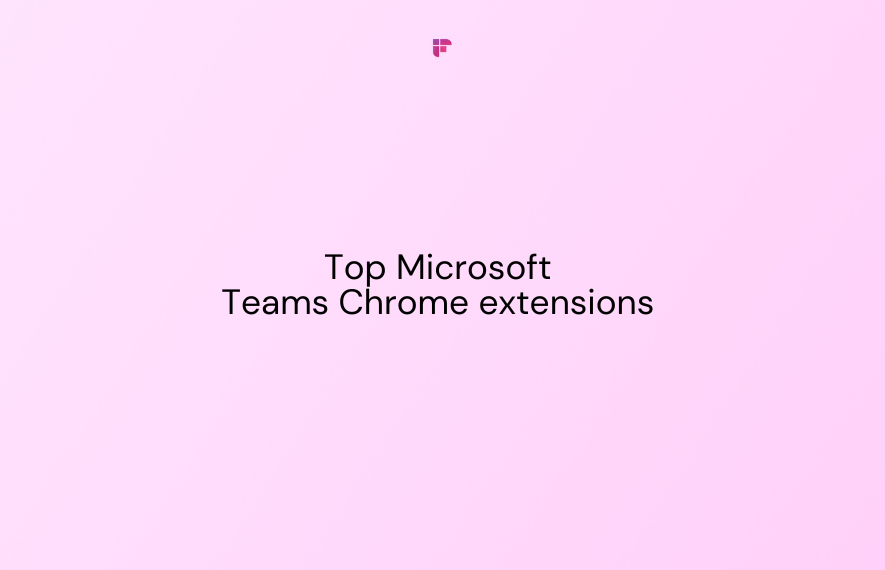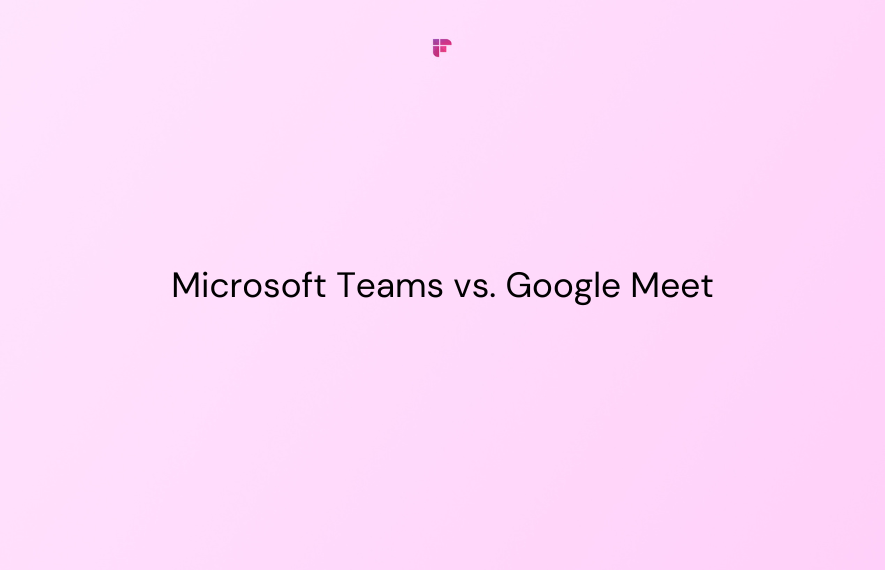As a recruiter or hiring manager, you know how crucial interviews are in shaping a candidate's perception of your company. In fact, a LinkedIn survey found that 83% of talent say a negative interview experience can change their mind about a role or company they initially liked.
With so much at stake, staying organized and capturing key details during interviews is essential to creating a positive experience and making informed hiring decisions.
In this guide, you'll discover how to take great interview notes, if it's even okay to take notes during an interview, and some tips to get you started. Plus, a handy tool to help you take accurate notes quickly during virtual interviews.
Let’s dive in!
How to effectively take notes during employee interviews

Here's how to take good interview notes in seven easy steps.
1. Inform the candidate
Start by making the candidates feel welcome. Explaining how the interview will be structured and inform them that you'll be taking notes.
Carefully explain why it's important and how it benefits the interview process. This'll help the candidate feel at ease knowing that their responses are heard and not get nervous looking at you taking too many notes.
2. Listen actively
Your notes should serve as a reference to aid your primary purpose: listening and observing the candidate. Try not to get caught up in making perfect notes and instead focus on capturing key information that will be useful later.
When you show that you're listening, the interview discussions become more productive, and the candidate won't feel like they're talking to themselves the entire time.
3. Paraphrase
You don't have to write down everything said during the interview—just the most important information. Paraphrasing quotes helps you save time while taking notes and avoid misquoting the candidate.
4. Ask the speaker to repeat themselves
If you're not clear about anything that you feel is important, it's okay to politely ask the candidate to repeat what was said. This ensures that you understand their answers and helps prevent miscommunication.Also, hearing something a second time can help you retain and absorb the information better.
5. Focus on important details

Avoid noting down redundant information, and try to focus on the things that are relevant to your goals for the interview. You can use automated note-taking or meeting recording apps in a virtual interview.
For example, Fireflies.ai is an AI-powered tool that offers features such as automated transcription, keyword highlighting, and note-taking during meetings, interviews, and other conversations.
With Fireflies, you can easily search and reference important parts of the conversation by using timestamps and keywords. It helps you save time and ensure you don't miss crucial information.
Try Fireflies for free!
6. Delay any analysis till after the interview
Delay any analysis until later to prevent making biased judgments or discriminatory decisions. This way, you can stay focused during the interview.
7. Be objective
Your interview notes should be factual and objective, avoiding biased judgments, inferences, or opinions. You can achieve this by sticking to quotes or verifiable statements from the candidate.Remember that your notes may be used as professional documentation and could be read by others, so it's crucial to maintain professionalism and accuracy.
8. Use an interview scorecard
Using interview scorecards is another way to make making interview notes easier. A scorecard has predetermined criteria to rate candidates and their answers during an interview. It ideally includes:
- a consistent ranking system
- questions related to qualifications
- a total score section,
- a "hire or not hire" section.
Note-taking works well with scorecards, as it helps you to provide additional comments or observations that may not be included in the scorecards.
The importance of taking notes during an interview
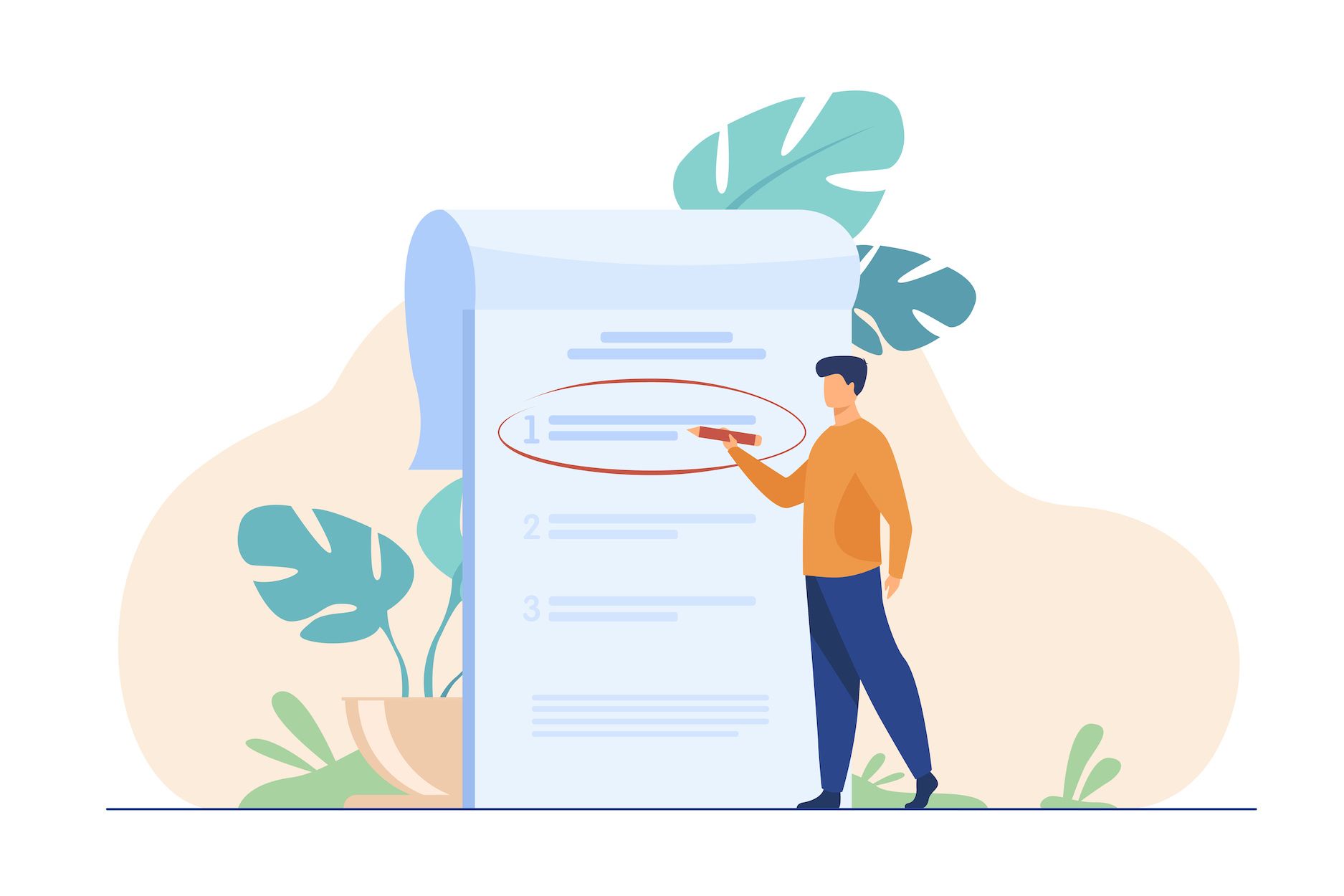
You may be wondering, "Is it okay to take notes during an interview?" Largely, the answer is yes. Taking notes is very important because it:
- Shows that you're being attentive.
- Allows for efficient follow-up after the interview.
- Assists you in making objective hiring decisions.
- Gives room for you to ask important questions.
- Helps you build rapport and understanding with your candidates.
- Allows for collaboration with team members as these notes can be shared.
- Ensures that you don't misquote any information.
- Assists in providing useful insights for the onboarding process.
- Helps you remember important details.
- Facilitates easier and more accurate evaluations of candidates.
In this remote age, most interviews are conducted virtually through platforms like Zoom or Google Meet. To make note-taking easier, you can use a tool like Fireflies that integrates with key video conferencing tools and automatically takes notes during your meetings.
You can take notes by hand or typing on a laptop in a good old in-person interview.
7 tips for taking notes during an interview
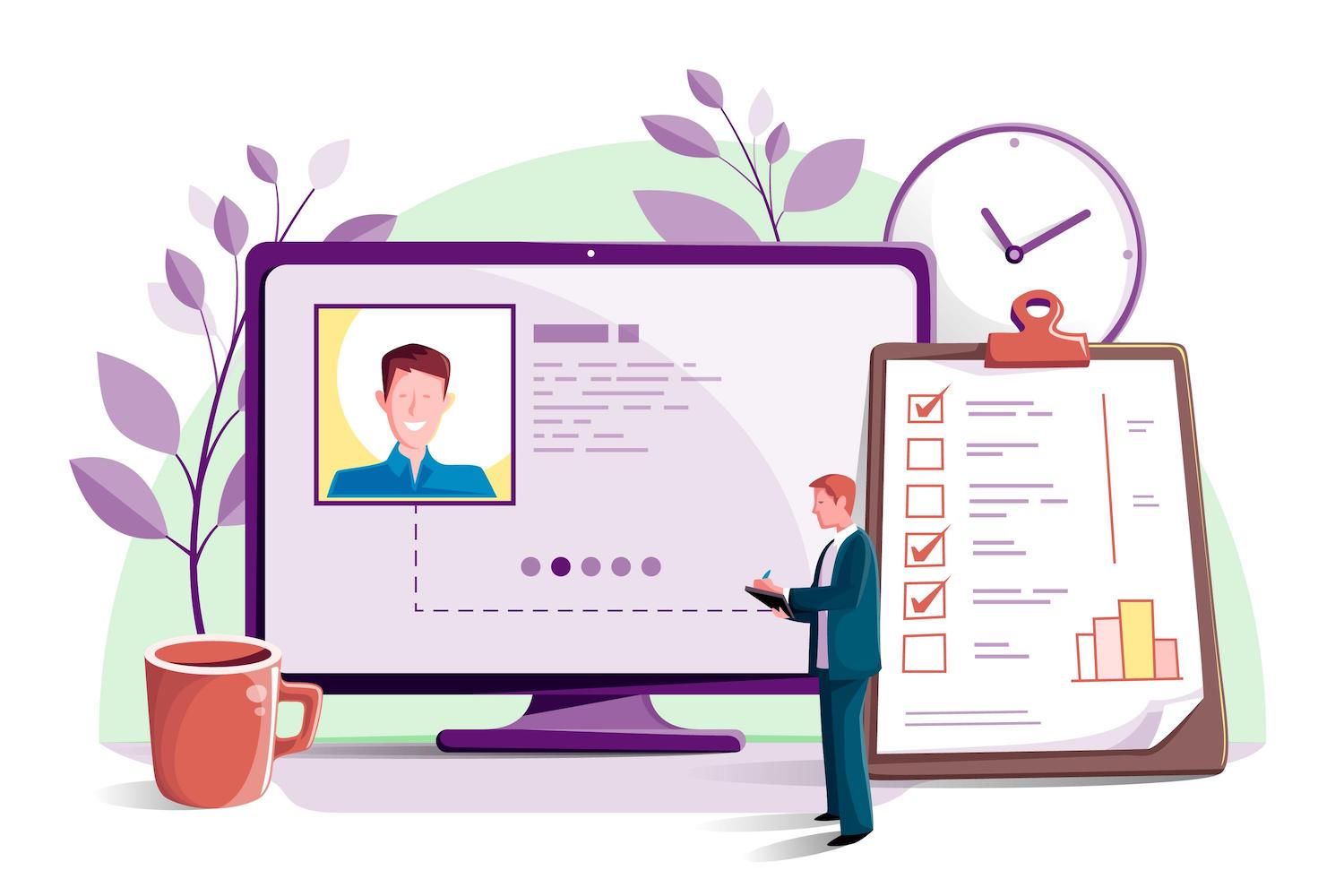
Want to master the craft of note-taking during interviews? Check out these seven tips.
1. Simplify the process for yourself
Develop a note-taking system that suits you by using shorthand, abbreviations, and acronyms that you are familiar with.
2. Leverage AI-powered note-takers
An AI note-taker like Fireflies can assist you in generating detailed interview notes by automatically transcribing the conversation and creating an organized, searchable record of the interview.
This tool also simplifies the process of reviewing and sharing notes with others and detects action items from the interview.
3. Use a blank document
Instead of taking notes on the candidate's application form directly, use a separate document to avoid errors and keep it professional. This makes it easier to correct mistakes and ensures a fair evaluation process.
4. If possible, avoid using laptops
Using a laptop during an interview is generally not recommended. It may create a perceived barrier between you and the interviewer, appear distracting and impolite, and even hinder learning.
So, it's ideal for you to take notes during an interview using a notepad.
5. Talk less
To take effective notes during an interview, limit your talking and focus on listening to the candidate. Keep the conversation short and ask brief follow-up questions.
Don't hesitate to take a moment of silence to write down important points or to politely ask the candidate for a brief pause to take notes.
💡 Fireflies Tip
Asking for this with a friendly tone may reduce any awkwardness.
6. Figure out your biases beforehand
Be conscious of your biases (if any) before an interview. Minimize them by focusing on candidate responses that relate to their competency for the position.
Avoid taking notes on anything discriminatory, like age, race, gender, culture, or disabilities.
7. Adopt the 'STAR' technique
Look for STAR answers during interviews. STAR stands for Situation, Task, Action, and Result, and it's a useful technique for candidates to answer behavioral questions.
If you notice that candidates use this in their answers, note them down, as it'll help you better analyze their skills and character traits.
Automate your interview notes and train recruiters faster

Fireflies.ai is an AI-powered meeting assistant that can be used to streamline your company's recruiting process. With Fireflies, recruiters and hiring managers can focus on their interviews while the tool generates automated notes, transcripts, and smart, accurate summaries.
One of the key benefits of using Fireflies in recruiting is that it allows you to capture and review every candidate's conversation in minutes. This is especially helpful when interviewing many candidates, as it can be difficult to remember all the details from each conversation.
With Fireflies, you can review past conversations and easily compare candidates to see who is the best fit for your organization.
What's more, it integrates seamlessly with web conferencing platforms like Zoom, Microsoft Teams, Google Meet, and Webex. Plus, it can also be super useful to train recruiters faster to help them screen candidates more effectively.

